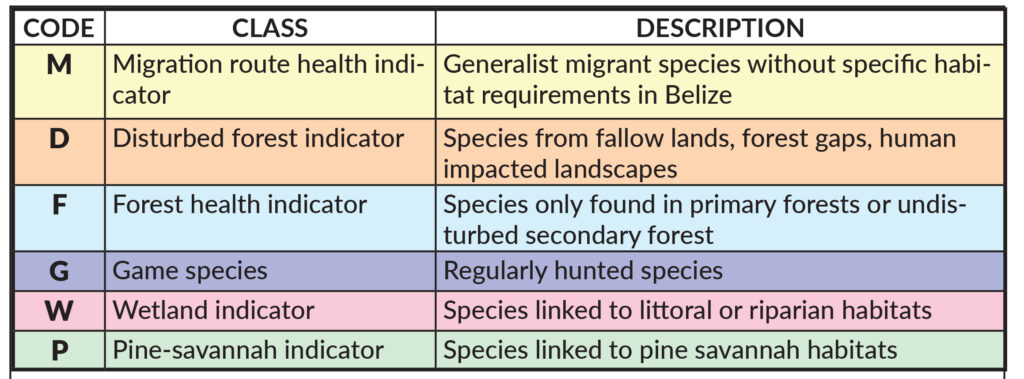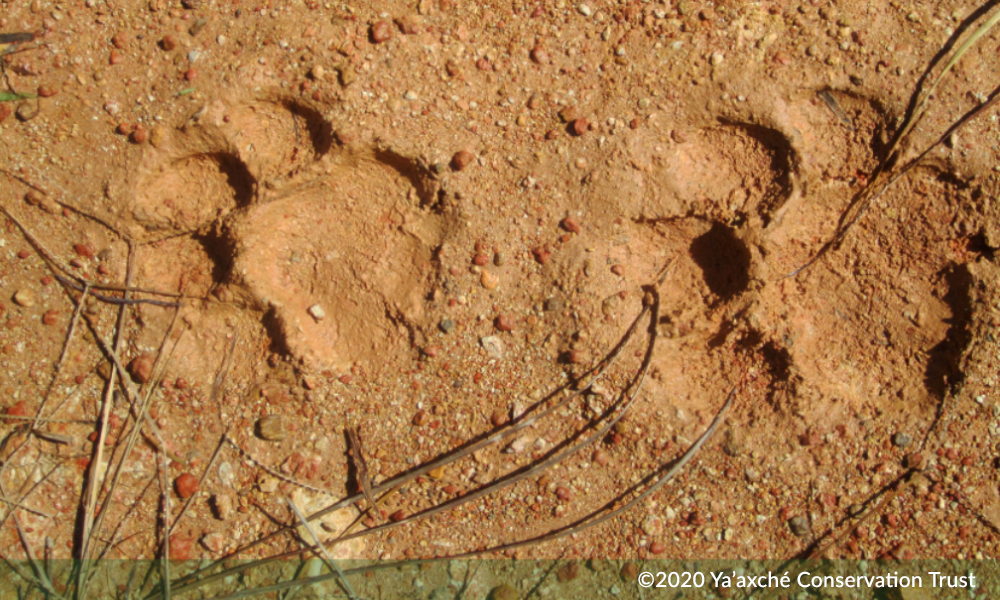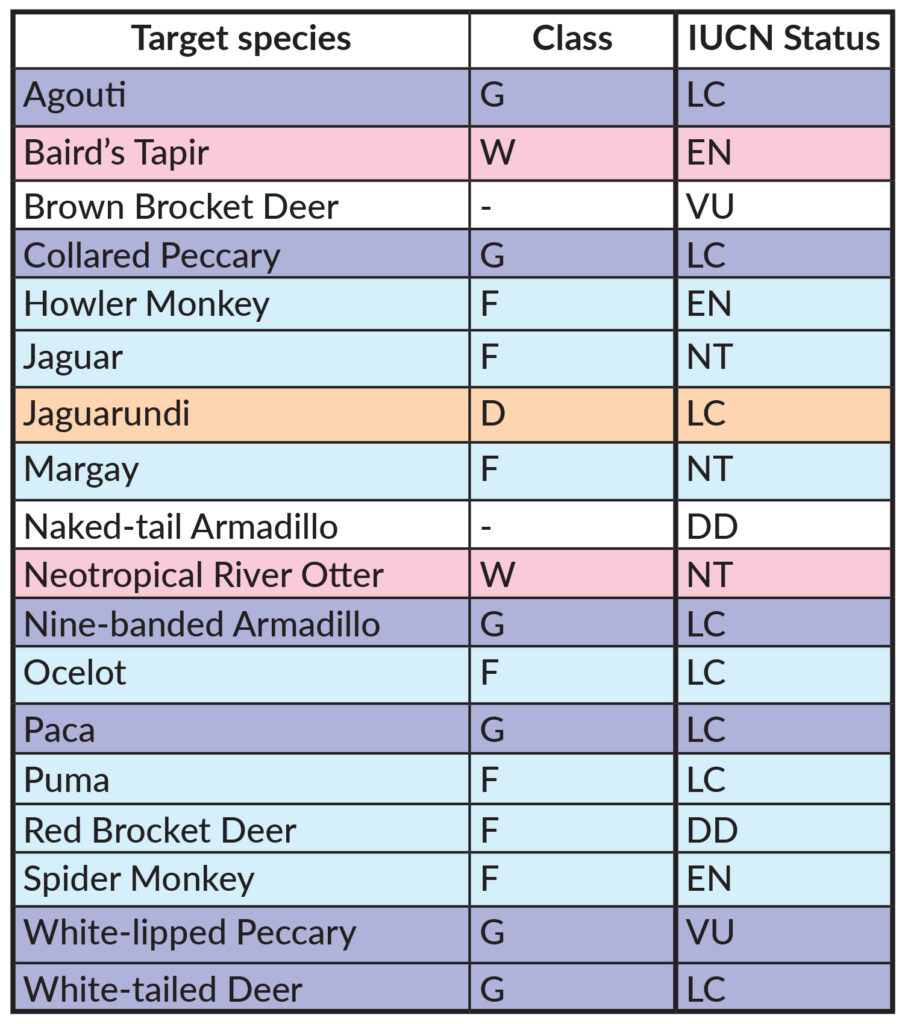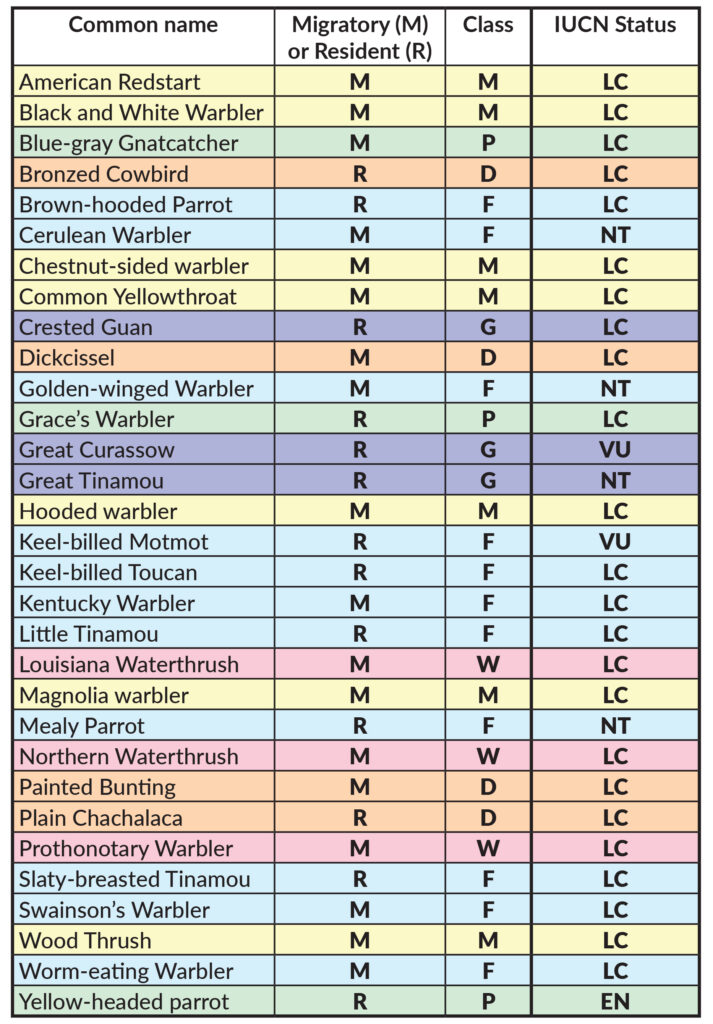Great curassows and ocelots among other species require undisturbed, healthy forests with clean water and abundant food for them to thrive, hence they serve as indicators of healthy forests or disturbance in the area.
Ya’axché rangers and researchers collect data on wildlife and their interactions with the environment. We target 19 mammal and 31 bird species that are sensitive to changes in their environment. These species help us understand the impact of our work and indicate any enforcement or management actions needed.
The target species are placed under classes. Table 1. Description of Indicator groups for both mammals and birds target species.
Large Mammals
Their presence or absence of the 19 target mammals species indicate whether forest, wetlands or pine savannas are healthy or otherwise impacted by human activities. For example, if there is a decrease in game species it could be an indication of increased levels of hunting pressure in one area or it could be related to habitat degradation.
We continuously monitor these target species with the use of camera traps and observation within protected areas and agroforestry farms.
Table 2. list of mammals’ target species their classification
Keeping an eye on the birds
The presence or absence of the 31 target bird species throughout the Maya Golden Landscape can be quite dynamic but also very interesting. The number of individual species and population levels can indicate and reflect the effects of land use change or even natural phenomena like hurricanes and even climate change. Closer to home, resident indicator species can tell us whether the ecosystems are being degraded due to agriculture expansion or other human activities.
Our team monitors these target species with the use of binoculars and site identification (observation and sound) within protected areas and agroforestry farms.
Table 3. list of birds’ target species their classification
KEY: LC = least concern, NT = near threatened, VU = vulnerable, EN = endangered, DD = data deficient. NA = not assigned.
Read more about our Bird & Large Mammal Monitoring projects, and some of the research visit our Downloads page.







